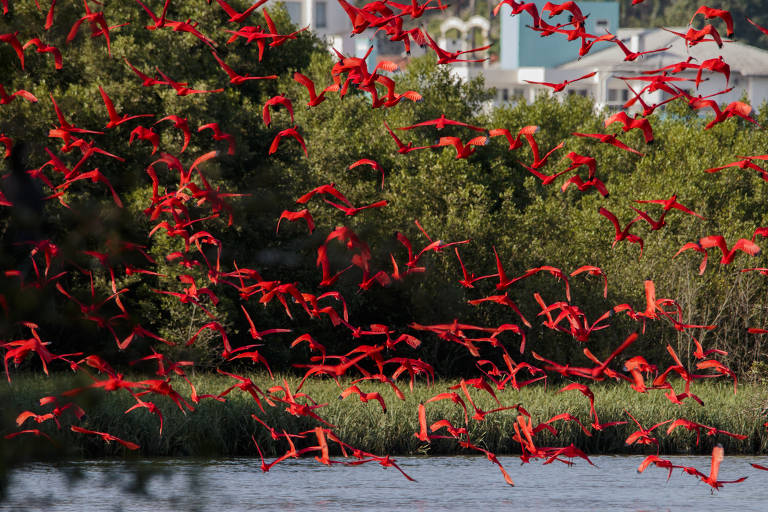The scarlet red that tints the sky with each flight catches the eye of the most unsuspecting observer, who soon associates them with flamingos.
With their lush plumage, the guarás (Eudocimus ruber) are back in Florianópolis.
The flock of birds had not been seen for over 200 years, according to researchers from UFSC (Federal University of Santa Catarina). The phenomenon mobilized fauna observers in the city. Among the possible reasons for the return of guarás, scholars say, is the recovery of mangroves on the island, where these birds can feed.
The flock of about 1,000 animals arrived in the capital of Santa Catarina earlier this week and excited environmentalists from north to south of the island. Fernando Farias, a biologist and birdwatching guide, was among the first to register the birds, which possibly came from Babitonga Bay in the north of the state, 200 km from the capital.
Nevertheless, it is too early to state the exact origin of the animals, since there are records of the species in all Brazilian coast, besides Argentina, Colombia, French Guiana, Suriname, Venezuela, Bolivia and Trinidad, and Tobago.
The birds are not threatened and are not on the IUCN (International Union for the Conservation of Nature and Natural Resources) Red List.
The disappearance of these animals for years may have several explanations, according to Fabrício Basilio, from the use of feathers in ornaments to the pollution of the oceans. Mangrove degradation, however, is pointed out by the researcher of the Protected Areas Observatory and the Integrated Coastal Management Laboratory of UFSC as the main factor in driving away the island's guarás.
Translated by Kiratiana Freelon
